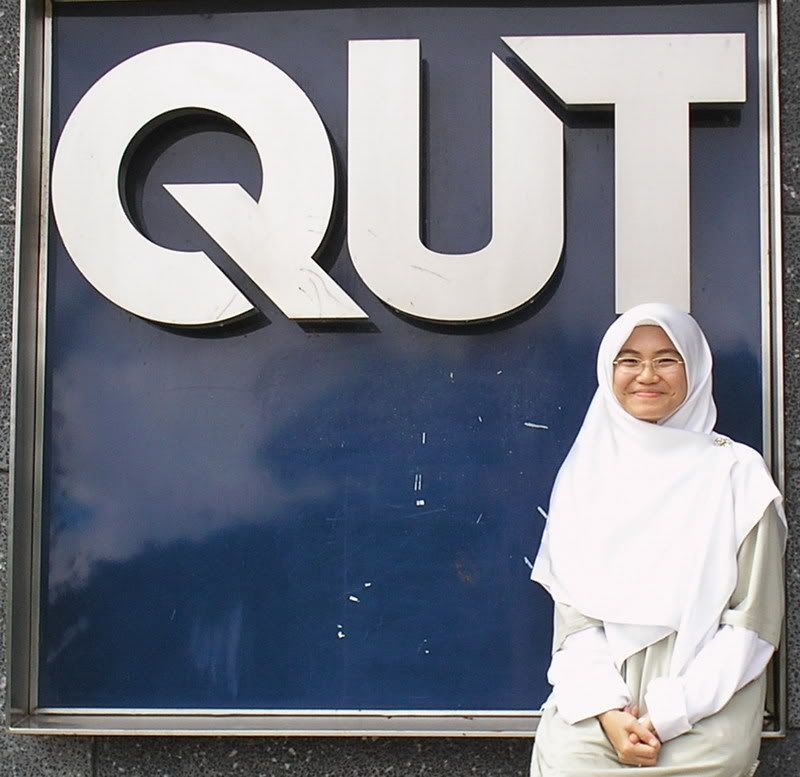Indeed, through out this unit, I have learnt so many things that really constructed my beliefs and understandings on Mathematics in general and in Early Childhood context in specific. Here are some of the lessons that really given me new insights and developed my personal philosophy:
- While I was introduced with the beginning process in the first week, I realized that Maths is not merely involved NUMBERS! It relates to other aspects and numeracy in EC consists of number, measurement, space and shape and data.
- While learning about number sense and basic operations, I came across many ideas that teacher can use to teach the basic operations and it doesn't necessarily related to books! Subitising is one example that really helps young kids to learn about numbers, solving the mathematics operations and also developing their number sense.
- The use of games and calculators in Week three's workshop, have provided me with new insights- as games and calculators are two things that 'forbidden' to be used within Malaysian early childhood class and primary classroom. The opportunity given in this workshop enabled me personally to identify the place of games and calculators in early childhood context.
- The use of 'skittles' as a data in Week 5's workshop on chance and data, has opened my mind about various ways that can be used to teach students complex concepts such as chance and data. From the process of counting the skittles until creating the class chart, were very engaging yet educational and inspiring.
- While learning about shape, I realized that I need to provide my students with a conducive enjoyable educational environment to learn Maths. It is because, before having the formal schooling, young kids have encountered many 'informal' lessons involving shapes. Thus, in the classroom, it is my responsibility to develop more geometry shape understandings and knowledge.
- While learning about measurement, I realized that myriad of resources can be used in developing students' measurement sense. As an example, the use of non-standard units such as unifix cubes or paddle pop sticks can engage students to measure things and at the same time develop their measurement sense.
- While learning about pattern and algebra, I came across that pattern can provide students with early algebraic thinking and therefore help young kids learn more about algebra in early years. Therefore, I realized that 'it is never too young to teach kids to learn about pattern and algebra'. However, it is a teacher's job to enhance students' understanding of patterns and to create interesting learning experiences in learning algebra.
Therefore, I believe that the teaching strategies used in this unit have a resemblance with Bredekamp and Rosegrant’s (1992) learning cycle to early childhood education. Awareness, exploration, inquiry and utilization are four repeating processes encompassed the learning cycle for young children.
As an example, I came to this unit with some recognition of concepts that developed from my experience learning Maths, then, I constructed my own understandings and meanings of the concepts while participating in the workshops using ‘sensory experiences’ with materials, classmates and new concepts. Learning in this unit in another culture (Australian culture) was really giving me a ‘medium’ to compare with Malaysian thinking skills and Maths teaching, as well as we recognized other cultural thinking. Therefore, towards the end of the unit, I designed some resources which were Australian based to be used in Malaysian classroom later on. The processes really demanded my understanding of the concepts to be used in another contexts, settings and situations. In all, this unit gave me new perspectives of Mathematics teaching and learning processes.
Another significant insight that contributes to my personal philosophy is related to awareness of the ‘gap’ between home and formal mathematics classroom. Before came to this unit, my perception of teaching was shaped by traditional ideology that ‘students come to class with empty vessel’. A research done by Aubrey (1997) also proved the same, ‘teachers seemed quite unaware of the rich, informal knowledge brought into school’ (p. 85). I have learnt and observed through out this unit that children are surrounded by Maths. Some of resources used were quite familiar resource that apart of children’s toys, such as clay, cubes and so on. Indeed, everyday, children are bombarded with new surprising and exciting experiences whilst attempting to make sense of previous experiences, therefore, they can become quite competent mathematicians long before they enter formal schooling (Bottle & Alfrey, 1999). In short, I need to make sense of the students’ basic mathematical knowledge on previous experiences align with the long term mathematical learning outcomes.
Being a reflective practitioner is always important for making the teaching and learning process a success. Having reflected on the learning experiences gained from this unit, I found the key to critical reflection is the notion that knowledge is created and constructed, rather than a received commodity (Ailwood, et al, 2006).
In conclusion, my personal philosophy is more to give children value in mathematical thinking that enable them to think independently with enjoyment and engagement therefore to develop positive attitudes towards mathematics.
References



No comments:
Post a Comment